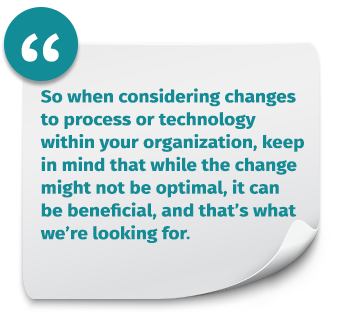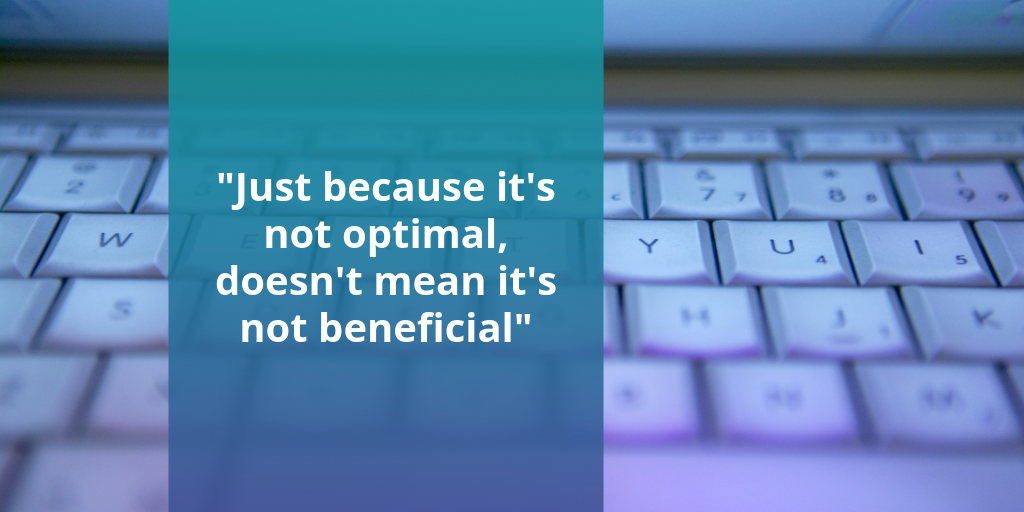I’m a big fan of the author James Clear who writes about the formation of habits. I believe (good!) habits are an important element of success (I’ve written about it before.)
In a recent blog post, Clear wrote: “Just because it’s not optimal, doesn’t mean it’s not beneficial.” Read another way, this is the old adage of don’t let the perfect become the enemy of the good. Or don’t let perfection be your target, because you’ll always fail.
I see this very commonly when discussing the integration of systems with clients (e.g., AMS and LMS). The optimal situation is a real- time, two-way integration between the two systems so that data is shared immediately.
time, two-way integration between the two systems so that data is shared immediately.
But this often proves to be very time-consuming and expensive to develop (and sometimes can’t be developed!). So rather than a two-way, real-time integration we opt for a two-way passing of data on a schedule (e.g., once per day). Optimal? No. Beneficial? Absolutely.
So when considering changes to process or technology within your organization, keep in mind that while the change might not be optimal, it can be beneficial, and that’s what we’re looking for.
This guest blog post/article first appeared at www.effectivedatabase.com and is repurposed with permission.

Wes Trochlil is a published author on data management in the association market. He helps organizations move data management from a cost center to a revenue generator.


